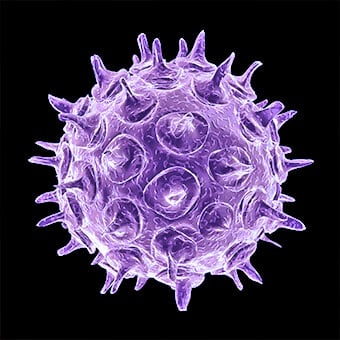Is Norovirus Contagious?
What is norovirus?

Norovirus is an enterovirus that causes food poisoning symptoms in individuals. It is sometimes termed the "stomach flu," but it is not related to the true flu viruses (influenza viruses) that cause respiratory problems. Norovirus is considered by the U.S. Centers for Disease Control and Prevention (CDC) to be the most common cause of acute gastroenteritis in the United States (about 19-21 million infections per year with about 570-800 deaths). Although most cases are self-limiting, some patients (children or the elderly, for example) may develop dehydration or other serious consequences, including death.
Is norovirus contagious?
Noroviruses are highly contagious. These viruses can easily infect men, women, and children. There are many subtypes of norovirus so that if you are infected with one norovirus type, it does not protect you against infection with one of the other types. The CDC estimates that in the U.S., every person will get about five infections (five different norovirus types) during their lifetime.
What is the contagious period for norovirus?
Individuals are contagious as soon as the symptoms develop and may remain contagious between three days to two weeks after symptoms are gone.
How will I know if I have norovirus?
Norovirus causes diarrhea, nausea, vomiting, and stomach pain; other symptoms may appear such as fever, headache, and/or body aches. Patients usually report feeling extremely ill and weak.
Because norovirus is usually associated with contaminated foods or fluids, usually an outbreak of the disease is seen among many people who have consumed the same contaminated food or liquids. Consequently, you may suspect you have norovirus if people who have consumed the same foods that you have consumed display the same symptoms (for example, cruise-ship passengers). Other outbreaks happen when an infected individual lives in crowded conditions (for example, dorms or barracks).
Most outbreaks of norovirus are diagnosed clinically from the patient's history and physical exam. Viral cultures can prove the diagnosis, but by the time test results are available (a few days), the symptoms are usually decreasing or are gone.
How is norovirus transmitted?
Noroviruses are easily spread to individuals by both direct and indirect contact with infected individuals. Direct contact usually occurs when people are taking care of infected patients (fecal/oral contact by changing diapers and/or bedding, for example). Norovirus can be transmitted or spread indirectly by body secretions (feces, saliva, or vomitus) to other individuals or to foods or liquids; individuals who are food handlers can easily cause outbreaks if they become infected and try to stay on the job. Norovirus can spread rapidly by indirect contact since the virus can remain viable for up to a few days on some surfaces.
Individuals can pass norovirus directly from person to person and indirectly by touching objects (utensils, for example) contaminated with norovirus or eating foods contaminated with norovirus. One study has showed that dogs may get the virus from one individual and then pass the virus to another human.
How will I know I am cured of norovirus?
The symptoms of norovirus infection usually last between 24 to about 72 hours, after which people usually recover completely. Although you may be "cured" of the type of norovirus that infected you, you are still susceptible to infection with other types of noroviruses. Individuals with a suppressed immune system, infants, young children, and the elderly may easily develop dehydration with norovirus infection; those with dehydration need to be treated urgently (with oral or intravenous hydration) to prevent additional problems and prolongation of infection.
When should I contact a medical caregiver about norovirus?
Norovirus infection can cause serious problems in those individuals who have more severe symptoms. Parents of children with signs of dehydration (for example, dry mucus membranes, reduced or no urine production) and adult individuals with similar problems need to contact a medical caregiver urgently. In addition, the following situations should trigger an urgent visit to a physician or an emergency department in any individual who may have norovirus infection:
- Children vomiting for more than one to two days
- Children under the age of 6 months with vomiting and/or diarrhea
- Mental-status changes in children or adults
- Individuals with other underlying medical problems (diabetes, congenital abnormalities, immune compromise, for example)
- Pregnancy
- Severe abdominal pain
- Blood in diarrhea fluid or vomit
